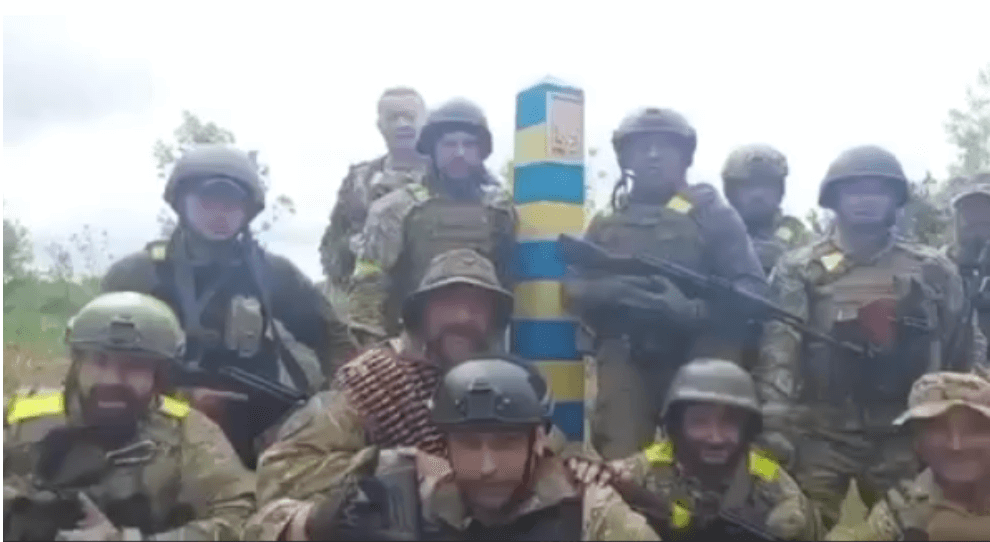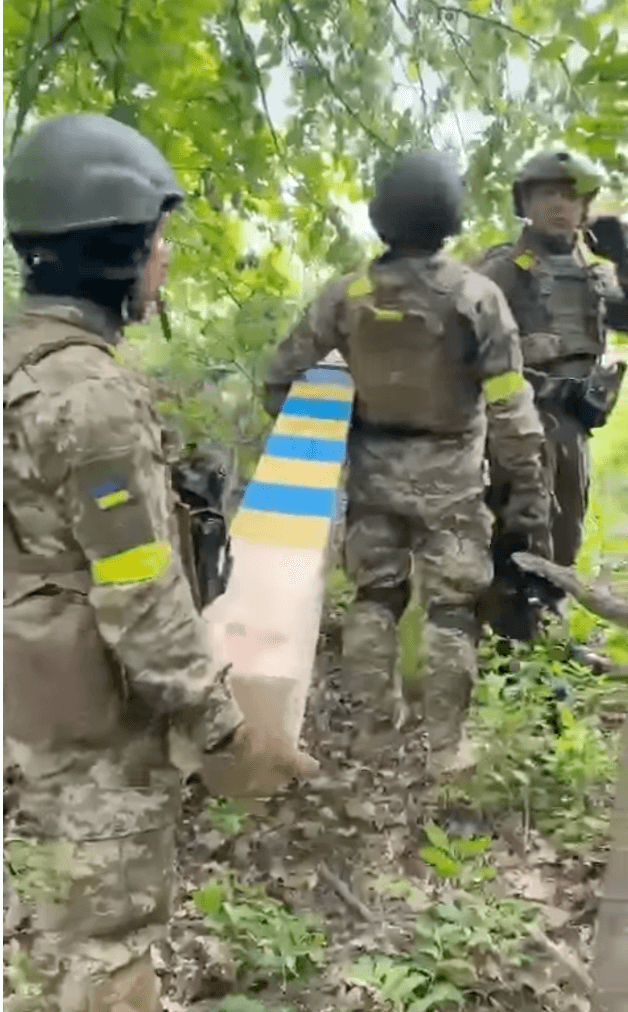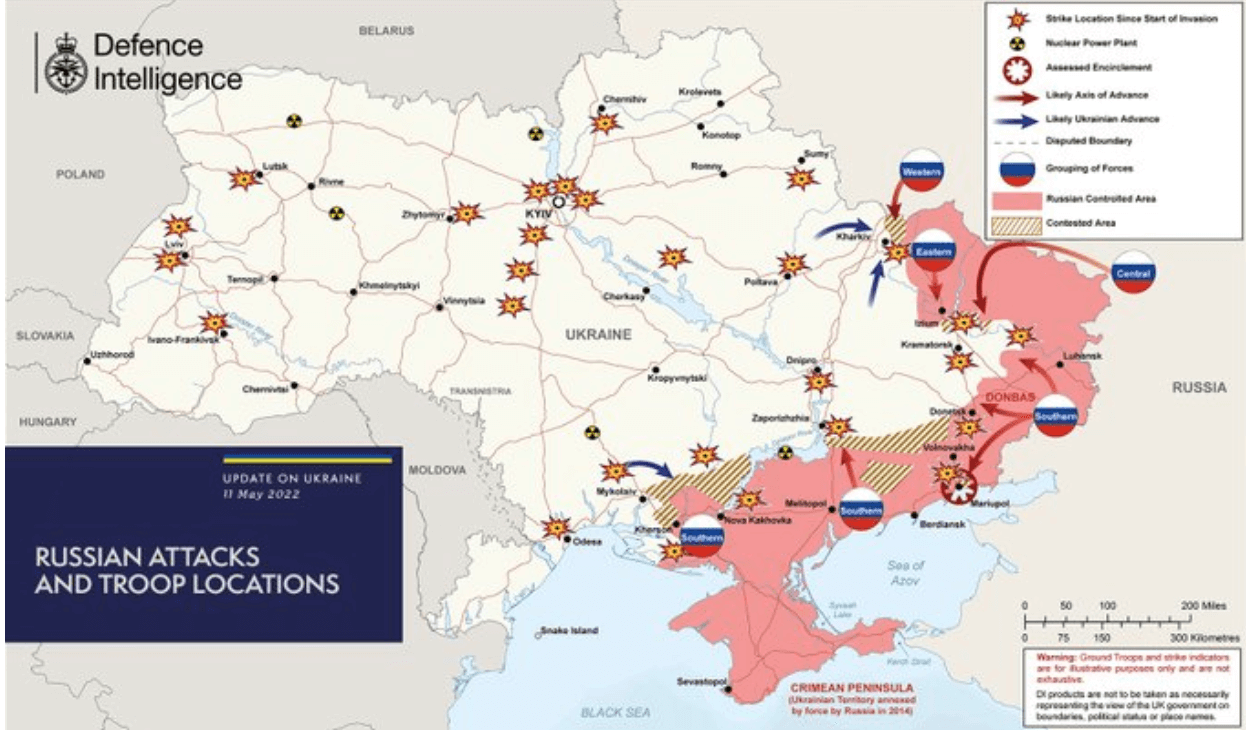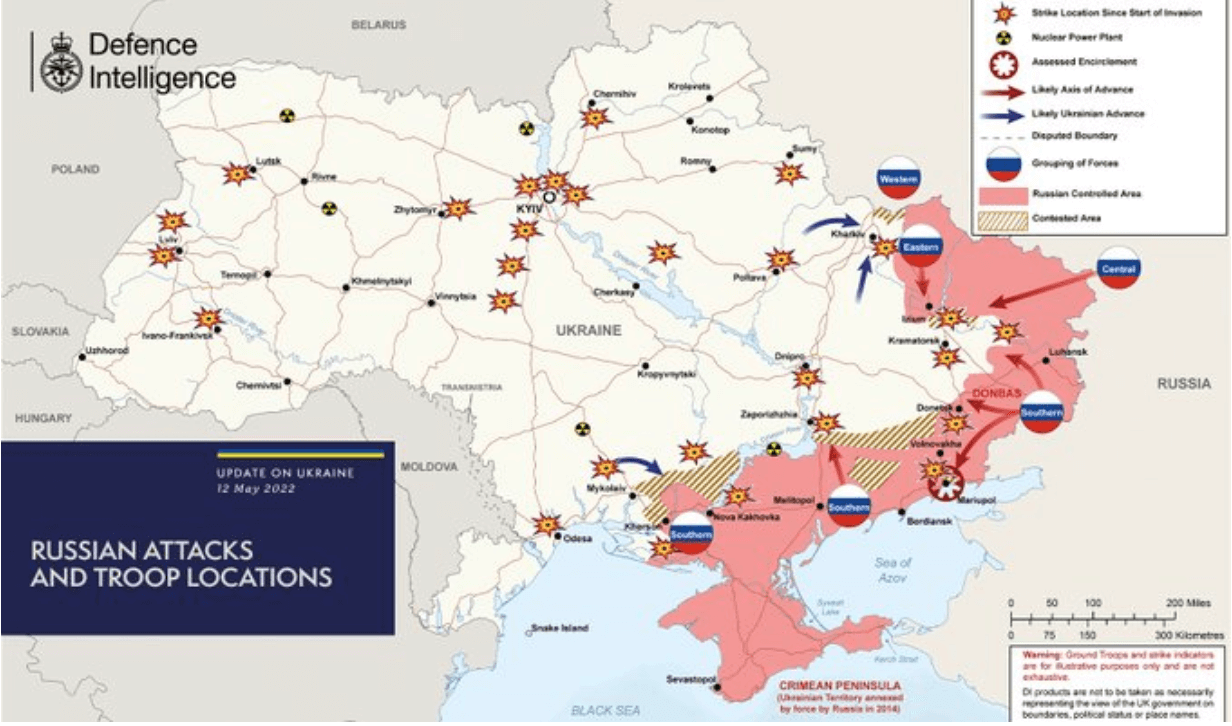Verification within Meta’s Third-Party Fact-Checking Program
The network spreads information that the Ukrainian military has allegedly only created the visibility of reaching the border with russia in Kharkiv region: they filmed elsewhere the video where they move the border post and take pictures with him. At the same time, they refer to the russian portal “Military Review”.
Freeze video from the 227th Battalion of the 127th Brigade of the Territorial Defense Forces of the Armed Forces of Kharkiv, which reached the state border with russia in Kharkiv region
On May 15, the Ministry of Defense of Ukraine reported that one of the territorial defense battalions pushed back the russian military and reached the state border in Kharkiv region. They also published a video in which one of the military people says: “Mr. President! Supreme Commander-in-Chief of the Armed Forces of Ukraine! We report. Today, on May 15, the 227th Battalion of the 127th Territorial Defense Brigade of Ukraine reached the border, a separate zone with the russian federation, the occupying country. We have arrived, Mr. President, we are here! “ The video also shows a border guard saying that the sign number 910/1 is behind the military people.
As proof that this video is an alleged production, the russian media write that a “full video”, which shows that the battalion brought a border post with it, appeared later.
In fact, the full video, in which the fighters carry the pillar, appeared an hour earlier than the report by the Ministry of Defense. It was published by Ukrainian volunteer Roman Donik. It shows a brigade of the Territorial Defense Forces carrying a pole to a separate strip on the border with russia and installing it. However, the military people could simply put the pole back in place or install a new one: it does not prove in any way that the video was not shot in the Kharkiv region.
Screenshot of a video showing the Ukrainian military people carrying a border post
The fact that Ukrainian troops pushed the russian occupiers in Kharkiv region to the russian border is proved not only by this video.
On May 5, the Commander-in-Chief of the Armed Forces of Ukraine Valery Zaluzhny announced that the Ukrainian military had launched a counteroffensive in the Kharkiv and Izyum directions. On May 19, Oleksiy Gromov, Deputy Chief of the Main Operations Department of the General Staff of the Armed Forces of Ukraine, announced that as of May 5, the Armed Forces had liberated 23 settlements in Kharkiv region.
On May 12, British intelligence reported that Ukrainian troops were continuing a counterattack north of Kharkiv and repelling towns and villages toward the russian border. British intelligence has said that russia is withdrawing troops from the Kharkiv region to replenish its forces after heavy losses, and that this indicates russia’s inability to capture key Ukrainian cities.
Maps published by British intelligence on May 11 and 12 also show that the Ukrainian Armed Forces were bordering russia in the Kharkiv region.
Map of British intelligence as for May 11
Map of British intelligence as for May 12
On May 13, the American Institute for the Study of War (ISW) released a report stating that the russian military was likely to decide to surrender its position around Kharkiv. The reason for this is the successful counteroffensive of the Ukrainian army and the problems with the reinforcement of russian units.
On May 14, experts from the Institute for the Study of War said that Ukraine had won the battle for Kharkiv. “So Ukraine seems to have won the battle for Kharkiv. Ukrainian troops did not allow russian troops to surround, and especially to capture, Kharkiv, and then drove them out of the city, as they did with russian troops trying to capture Kyiv,” – the report said.
Attention
The authors do not work for, consult to, own shares in or receive funding from any company or organization that would benefit from this article, and have no relevant affiliations






